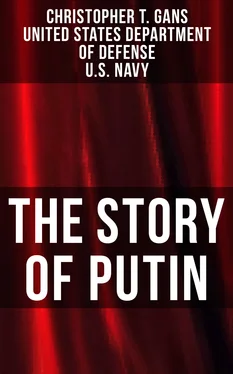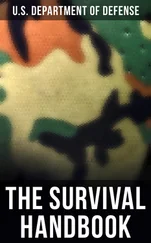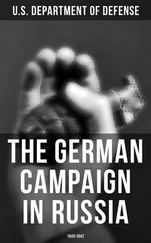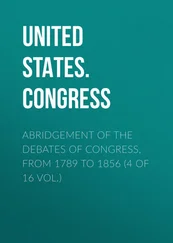Second, did the event occur in the person’s early adult life? Putin joined the KGB right after college and matured during the height of the Cold War, so yes. Third, did the event result in big consequences for the person’s nation or the person himself? Another obvious yes. Fourth, was the person familiar enough with the international environment that alternative explanations or perceptions regarding the event in question were possible? Putin, in the KGB and stationed in a foreign state, was much more informed of the international situation than the average Soviet citizen. He, therefore, was exposed to alternate analyses of the international situation than what a Soviet commoner heard exclusively from state-run propaganda. 6All four of Jervis’s variables are applicable to Putin’s experience in the Cold War and KGB. This implies that those events, and in the case of this thesis the anti-Americanism intrinsic in those events, dramatically affected Putin’s perceptions. Those perceptions became engrained in the cognitive psyche of Putin during the Cold War, only to remain long past the end of the Cold War and persist to the modern day.
A person’s beliefs are formed from cognitive predispositions toward information that is consistent with their pre-held views. Information that subsequently conforms to those pre-held views resonates even more. It is a psychological-unmotivated bias that reinforces and strengthens the original belief, which can make it extremely difficult for leaders of states to receive and interpret signals properly, potentially conflating their threat perceptions. “The decision maker who thinks that the other side is probably hostile will see ambiguous information as confirming this image, whereas the same information about a country thought to be friendly would be taken more benignly.” 7Putin matured in the Soviet and KGB establishment to consider the United States hostile, so anti-Americanism was warranted, and his perception of information about the United States, therefore, will only further endorse such a pre-ordained hostile character, making ongoing anti-Americanism equally warranted.
Many influential world leaders consider the global environment to be one of perpetual high conflict, whereas some see opportunities for common interests more likely. 8One could probably place Vladimir Putin in the former grouping, due in no small part to his predisposed KGB-mentality. Many of Putin’s remarks in this, the 21 stcentury, could as easily have been pronounced thirty years ago on a podium under a collection of red Soviet flags. In 2012 he, like so many Soviet leaders before him, resorted to missile rhetoric, calling nuclear weapons the primary mechanism for ensured Russian security while simultaneously denouncing Russian free press reports during the 1990s that painted the armed forces in any negative light, calling such anti-military or anti-government news stories a “real moral crime and an act of treason.” 9The Soviet mentality equated any anti-government rhetoric as potentially treasonous, to be investigated and prosecuted by the KGB. Additional examples of Putin’s KGB-mentality-inspired actions and rhetoric, specifically toward the United States, shall be offered in subsequent sections of this chapter.
1Ibid., 60.
2Ibid., 63.
3Sarah Mendleson and Theodore Gerber, “Us and Them: Anti-American Views of the Putin Generation,” The Washington Quarterly 31, no. 2 (2008): 131.
4Mikhail Tsypkin, “Russian Politics, Policy-making and American Missile Defense,” International Affairs 85, no. 4 (2009): 782.
5Robert Jervis, Perception and Misperception in International Politics (Princeton, New Jersey: Princeton University Press, 1976), 217.
6Ibid., 239.
7Robert Jervis, “Perceiving and Coping with Threat,” in Perspectives on Security , ed. Richard Lebow (Baltimore: Johns Hopkins University Press, 1985), 18.
8Ibid., 19.
9Vladimir Putin, “Being strong: National security guarantees for Russia,” Rossiiskaya Gazeta , February 20, 2012.
Table of Contents
Vladimir Putin would witness firsthand the collapse of first the Warsaw Pact, and then the Soviet Union itself. A turbulent decade followed the surprisingly bloodless birth of the new Russian Federation. Though Putin would remain estranged from the key levers of national power and prestige until the end of the 1990s, he would, nevertheless, bear witness to a series of events internal and external to the Russian state, events in which the United States and West remained active participants. Such events would only further frustrate a Russian already so intrinsically suspicious of America and further ossify Putin’s Soviet-era anti-American disposition.
1. Putin in the Aftermath of Collapse
Table of Contents
Vladimir Putin, upon leaving East Germany as the Berlin Wall collapsed, and the Cold War with it, returned to Leningrad. He accepted a KGB posting within the University after refusing a higher-level position at KGB headquarters in Moscow. He claimed to have recognized the futility of working in Moscow as the Soviet system slowly disintegrated and desired no part in it. 1In the aftermath of the 1991 coup attempt against Gorbachev, Putin resigned from the KGB and further attached himself to a former friend and now mayor of Leningrad, Anatoly Sobchak, eventually rising to the position of deputy mayor of (renamed) St. Petersburg. 2Upon Sobchak’s defeat in the elections of 1996, Putin accepted a series of positions within Russian President Yeltsin’s administration in Moscow, where he quickly caught the respectful eye of the aging president. Putin eventually rose to a position within the Presidential Staff, followed shortly thereafter by an appointment in July 1998 to head the Federal Security Service (FSB), the primary successor organization to the KGB, a job that Putin had recently told his wife he would never take even if offered. 3Merely one year later Putin would be named acting Prime Minister of the Russian Federation and Boris Yeltsin’s designated successor. But events involving the United States and Russia that occurred in the timeframe between Putin’s return from Germany and his sudden placement into power at the close of the decade would permanently affect the eventual second President of the Russian Federation. These events would seem to confirm the pre-conceived notion of an inherent hostility by America toward Russia.
1Gevorkyan, First Person, 68.
2Ibid., 80.
3Ibid., 106.
2. Russia and the West in the 1990s: U.S. as an Inadvertent Contributor to Putinist Anti-Americanism
Table of Contents
While working for most of the 1990s in behind-the-scenes positions in St. Petersburg city government or within the Yeltsin bureaucracy in Moscow, Putin could observe from afar the nature of post-Cold War Russian relations around the globe. Too often, the weakened Soviet successor state that became Russia was incapable of influencing global events like its superpower predecessor. The United States and West, operating in a new environment lacking any geostrategic bipolarity, engaged in actions that could only further alienate Russia and its current and future leaders. Though Putin could not directly affect the repeated snubbing that Yeltsin incurred from the West, the memories of how the United States and West treated a weakened Russia would affect how the next generation of Russian leaders viewed their former Cold War opponents. Of the many events in Russian-Western relations during the 1990s, several critical issues shall be examined more thoroughly, issues in which the United States and its allies inadvertently contributed to fomenting anti-Americanism in Russia and justifying anti-Americanism in the eyes of eventual President Putin.
Читать дальше












